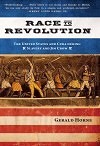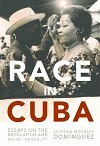Race
One of the most powerful metaphors in critical education literature is “the school to prison pipeline.” The phrase conjures a vivid, unambiguous image, the meaning of which few would debate: poor and black and brown children being sucked into a vortex from mainstream educational environments and heaved onto a conveyor belt carrying them onto a one-way path toward privatized prisons, where the economic outcome of under-education and discipline is most evident.… Excessive discipline is often a critical first step out of schools for select youth—black boys, in this case—who disproportionately find themselves in prison. Being designated as disabled nudges the other foot out of the schoolhouse door. | more…
Although the student body in the United States is becoming more and more diverse, the teaching staff is strikingly homogenous… [W]hile many legislators may be unaware of the role of cultural competence, i.e., the ability to relate to diverse cultures, in teaching children in the United States, those who are on the ground in classrooms and schools everyday recognize its importance.… Education consultant Ruby Payne [—a self-proclaimed expert on the “mindset of poverty”—] represents one particular response to the culture clashes in the classroom. Her widespread success at once highlights the salience of race and class inequities, and speaks to the absence of practical educational strategies to confront them. | more…
Throughout U.S. history, the “truths” [Thomas] Jefferson declared as axiomatic [in the Declaration of Independence] have hardly been evident in the lives of many “Americans,” certainly not in the lives of the two hundred or so slaves Jefferson held on his plantation.… [The recurring] contradiction between ideal and reality is the root of a continuing struggle over what the United States is to be as a nation.… For black people especially, this contradiction has been most persistent and destructive in “education.” | more…
Manning Marable, who died last April 1, aged sixty, was the quintessential radical academic/activist. A friend of Monthly Review for many years, he wrote numerous articles for the magazine and chapters for Monthly Review Press books. Manning was a committed Marxist and socialist. He unflinchingly engaged with issues of race and class, most recently working with younger artists of color organizing for social change as a founder of the Hip Hop Summit Action Network.… In MR‘s July-August 1995 issue Marable posed this challenge: “Americans continue to perceive social reality in a manner which grossly underestimates the role of social class, and legitimates the categories of race as central to the ways in which privilege and authority are organized. We must provide the basis for a progressive alternative to an interpretation of race relations, moving the political culture of black United States from a racialized discourse and analysis to a critique of inequality which has the capacity and potential to speak to the majority of American people. This leap for theory and social analysis must be made if black United States is to have any hope for transcending its current impasse of powerlessness and systemic inequality.” | more…
Marilyn Buck (1947-2010) spent over twenty-five years in prison for politically motivated actions against U.S. government policies and in support of the Black Panthers and the Black Liberation Army. She wrote these poems behind bars, as a way to comprehend the reality of prison and continue her fight as a white woman against injustice, particularly U.S.-generated white supremacy. Paroled in July 2010, she died of cancer twenty days after her release. | more…

The histories of Cuba and the United States are tightly intertwined and have been for at least two centuries. In Race to Revolution, historian Gerald Horne examines a critical relationship between the two countries by tracing out the typically overlooked interconnections among slavery, Jim Crow, and revolution. Slavery was central to the economic and political trajectories of Cuba and the United States, both in terms of each nation’s internal political and economic development and in the interactions between the small Caribbean island and the Colossus of the North. Horne draws a direct link between the black experiences in two very different countries and follows that connection through changing periods of resistance and revolutionary upheaval. | more…
Who could have imagined the 2008 presidential campaign?
Commentators, media people, and especially politicians fell all over themselves proclaiming that the 2008 election had, “nothing at all to do with race.” And yet every event, every speech and comment, every debate and appearance had race written all over it. Stephen Colbert, the brilliant satirist, hit it on the head when he asked a Republican operative, “How many euphemisms have you come up with so far so that you won’t have to use the word ‘Black?’” Everyone laughed good-naturedly. | more…

Esteban Morales Domínguez is one of Cuba’s most prominent Afro-Cuban intellectuals and its leading authority on the race question. Available for the first time in English, the essays collected here describe the problem of racial inequality in Cuba, provide evidence of its existence, constructively criticize efforts by the Cuban political leadership to end discrimination, and point to a possible way forward. | more…
Chip Smith, The Cost of Privilege: Taking On the System of White Supremacy and Racism (Fayetteville, NC: Camino Press, 2007), 466 pages, paper $19.95.
In The Cost of Privilege: Taking On the System of White Supremacy and Racism, Chip Smith has written a historical treatise on white racism in the United States. He provides a well researched, detailed account of the cause and effect of white privilege in the United States. The book effectively examines the influence of racial privilege on a broad range of social relations from an international to a personal level. It targets progressive white people who are consciously anti-racist and provides insights for individual self-reflection and organizational change | more…
Beginning in March 2008 and extending through the last Democratic primaries of early June, the United States witnessed the most brazen demonization in its history of a person based on his race, his creed, and his ties to a presidential candidate. One major purpose behind these attacks was to use the demonized figure to discredit the politician. But participation in the attacks also fed the voracious, twenty-four-hour-aday media appetite, and quickly took on a life of its own. When we look back at the ugly spectacle then taking place, the evidence suggests that, despite much optimism about narrowing racial divides and an emerging “post-racial” consciousness, something much closer to the opposite had gripped America. | more…
In trying to comprehend the virus of Islamophobia now infecting Europe, the small country of Denmark offers powerful insights. Shakespeare’s phrase that “something is rotten in the state of Denmark” seems appropriate to describe the transformation taking place in this former bastion of tolerance and conviviality. | more…
Sudhir Alladi Venkatesh, Off the Books: The Underground Economy of the Urban Poor (Cambridge, MA: Harvard University Press, 2006), 448 pages, hardcover $27.95.
In 1988, the National Urban League reported, “More blacks have lost jobs through industrial decline than through job discrimination.” For a civil rights organization, this was a remarkable observation. Born in the era of Jim Crow racism, the Urban League championed the aspirations for upward mobility among urban African Americans. When banks refused to lend money to black entrepreneurs or when municipalities failed to service the black community, the Urban League intervened. One of the demands of the Urban League was for public goods to be shared across racial lines. While the organization was not on the frontlines of the civil rights struggle, it would have been a major beneficiary of the movement’s gains. But the tragedy of the civil rights struggle was that its victory came too late, at least thirty years late. Just when the state agreed to remove the discriminatory barriers that restricted nonwhites’ access to public goods, the state form changed. Privatization and an assault on the state’s provision of social welfare meant that it was not capable of providing public goods to the newly enfranchised citizens. At the same time as the state retreated from its social welfare obligations, the industrial sector in the U.S. crumbled in the face of globalization. Industrial jobs, once the backbone of the segregated black communities, vanished | more…

